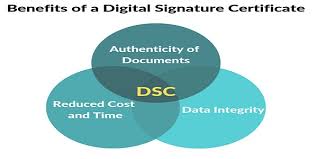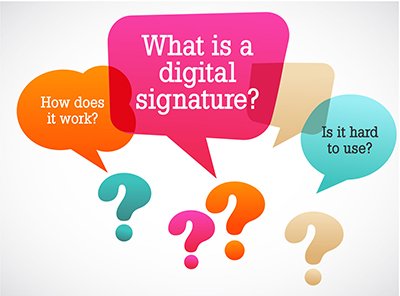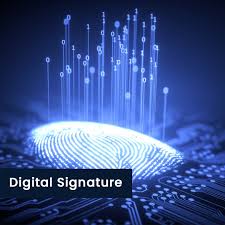Digital signature is a technique that verifies the authenticity of a digital document in which a specific code is attach to a message that acts as a signature. The message hash is use to create the message and then encrypt it with the sender’s private key. The signature ensures the source and integrity of the message.
Techniques of Digital Signature
The Digital Signature Standard (DSS) was develop for digital signing. The National Institute Standards for Standards and Technologies (GNIST) issued the DSS Standard in 1991 as the Federal Information Processing Standards (FFC) Pub 186.
The SHA-1 algorithm is use in DSS to calculate the message digest as oppose to the original message and uses the message digest to obtain a digital signature. To do so, DSS uses a digital signature algorithm (DSA). DSA is based on asymmetric key cryptography.

Moreover, the RSA algorithm can also be used for digital signing, but its primary use is to encrypt the message. However, DSA cannot be use for encryption.
Definition of digital certificate
A digital certificate Digital signature certificate in Bangalore is simply a computer file that helps establish your identity. It officially approves the relationship with the certificate holder (user) and a specific public key. Thus, the digital certificate should include the username and the user’s public key. This will prove a specific public key owned by a specific user.
The digital certificate contains the following information: the subject name (the username is know as the subject name because the digital certificate can be give to an individual, a group, or an organization), the serial number, the validity date range, and the name of the issue, etc.

A Certification Authority (CA) is a trusted agency that can issue digital certificates through DSC in Bangalore to individuals and organizations who wish to use those certificates in an asymmetric key cryptographic application. Generally, a CA is a reputed organization, such as a financial institution, post office fee, a software firm, etc. The most popular are CA’s Verisigan and Assignment.
Difference between digital signature and DSC
The digital signature in Bangalore proves the authenticity of the digital document. Digital certification, on the other hand, identifies the website.
The digital certificate is digitally sign and can be use to digitally sign other documents. The digital signature of the CA is verified on the digital certificate and certificate issued under DSC in Coimbatore.
The process of creating a digital certificate involves key generation, registration, verification and creation steps. In contrast, digital signature processing involves encryption and decryption of messages at the end of the sender and recipient, respectively.
Benefits of DSC
1. Simple and practical
The biggest advantage of digital signature obtained through DSC in Bangalore is its simplicity and ease of use. Once the signer has obtained his digital signature, it is very easy to apply it to any document and send it securely. The recipient signs the document and the process is complete. It’s simple and can be accomplished with the ease of office fees.

2. High level of security
In today’s digital era, e-business is the norm and everyone prefers to send documents on traditional paper documents as opposed to electronic media. Digital signatures obtained through Digital signature certificate in Bangalore become essential in such scenarios. It contains not only the sender’s signature, but also information on who signed the document, when and where it was. These inherent features of digital signature apply stronger protection than a traditional paper document.
3. Confidence
All businesses operate in geographically isolated locations. Small businesses also have to deal with suppliers, customers and partners located in different states, cities and even countries. Digital signature authentication simplifies online authentication, making it a more convenient solution than the paper-based printed and scanned version.
4. Quick way
The convenience of digital signatures obtained through DSC in Bangalore naturally indicates a quick turn time. Instead of involving multiple players, one side of the business transaction will perform the action of printing, signing, scanning and sending, and the other set of actions, on the other hand, takes place at the click of a digital signature authentication button. Naturally, it gives businesses the necessary agility, edge and helps improve trust with their stakeholders.
Types of Digital Signature
Primarily, four types of digital signature certificates are issue in India –
Class 1: Class 1 DSC is use only for identification of a particular person’s credentials. It cannot be used for authentication and, therefore, is not permit to sign any documents.
Class 2: In this case, the signer’s identity is verified against a reliable, pre-verified database. It is issue for purposes like filing income tax e-returns, MCA / ROC (Ministry of Corporate Affairs / Registrar of Companies), Compensation, Provident Fund Claims.
Class 3: This is the high level of DSC where a person is require to be physically present before the Registration Authority and prove his identity with proper documents. Certificates are commonly use to book tickets online, e-tenders, e-procurement and more.
DGFT Digital Signature Certificate: The certificate is issue by the Directorate General of Foreign Trade (DGFT), and is used to sign foreign trade transactions and communicate with the DGFT.
Some applications of DSC
Literature surveys show that digital signatures have implementation in a various of electronic environment environments such as key agreement protocols (e.g. common share group keys for group communications), contract signing protocols, chip level programming, fault tolerance techniques, web-base assessment systems, identity-base authentication and object-orient software have been implement in advance.

The contract signing protocol is a method that allows mutually suspicious parties help to overcome each other’s mistrust and communicate electronically with minimal risk. This technology initiates a service level agreement which refers to the quality of services that are to be maintained between the negotiating parties and provides for penalties if the agreement is breach. This technology can be use more effectively.
Fault tolerance
Fault tolerance technology defines a method for obtaining reliable software that makes it possible to provide service even in the presence of defects. This state can be achieve by error can be achieve through procedure or through fault treatment. The purpose of error processing is to remove errors from software either by error recovery or by error compensation.
The purpose of treatment is to prevent activation of the defect and therefore action is take before the penetration of the defect. Such technology can be use to develop more sophisticate software that will be less susceptible to hardware or software interruptions during its practical implementation.
